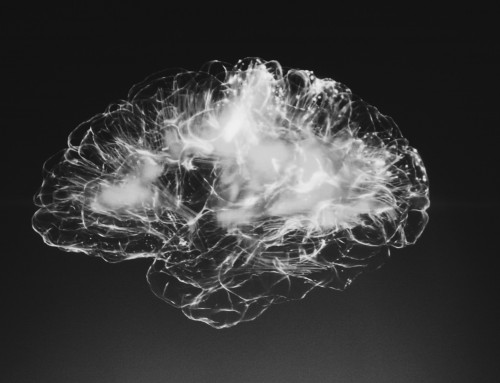Depression is not merely ‘on the rise’ – it’s slowly but surely becoming an epidemic!
Depression, which is the leading cause of ill health and disability worldwide, currently affects over 350 million people worldwide according to the World Health Organisation (WHO) and predicted by 2020 to become the second leading cause of disease worldwide.
About 12 years ago, I went through a period of depression that lasted about 6-12 months, it could have been longer, as when you are going through it you kind of lose track of time. This was a period where the thought of killing myself came into my mind on nearly a daily basis.
Things in my life were not working for me, I was the father of two young daughters who lived 250 miles away from me. I was struggling to bring in enough business to pay the bills and I was having to juggle things just to keep everybody happy. What was probably helping me more than I realised was that my exercise routine and healthy eating was still a strong part of my life. I was teaching a number of classes so was still getting my daily endorphin hits, and I the needed a good supply of nutrients to maintain that, along with training my private clients.
However as the saying goes, never judge a book by its cover, as internally it was more like a scene from a horror movie. My self-worth and how I was thinking about life was the worst I had ever experienced and as an introvert, asking for help was not something I did. So for me, it was easier to go into my cave and lock myself out from the world. This meant that about 80% of the time I was living in a fog of negative thoughts that consumed my thinking every waking hour.
I could act “normal” when I was with people and no one from the outside world, including close friends, knew what was going on. As soon as I was back on my own, my mind was ready to go back into negativity mode. It became my way of life and to be honest I could function well enough like this. However we all have a breaking point and for me, it was the suicidal thoughts. I either had to follow through with it or change my life in some way.
Here’s the thing. I believe there is something powerful within each of us that when we tap into it, it allows us to traverse these periods of our lives. For me, I needed to understand why I was feeling this way because at the time having depression wasn’t something that was spoken about, I just didn’t get it. Here I was working in the health and wellbeing industry, going through a time that was not affecting my physical body, though mentally was taking me on journeys in my mind that I did not like and was making me feel like life wasn’t worth living anymore.
So over the next two posts, I want to share firstly the thing that triggered me to think differently about what I was going through and then in part 2, what it was that I changed within myself to clear the fog that consumed my life. The bonus for me was that unbeknown to me at the time, this experience would be something I would help clients who were going through their own severe challenges.
What helped me was seeing that depression has an evolutionary advantage to it. So you mean there’s some benefit to all of this? As weird as it may sound and I know while you are going through it, it doesn’t feel that way, though this was one of the things that shifted my mindset in how I dealt with it.
Here’s what fascinates me. The emotions that are associated with depression are the same ones that helped protect humans for thousands of years. By being in this state, it helped them take action in the face of immediate problems, such as an attack from a predator. Though the difference was once they had survived the stressor that triggered the depressive state of mind and once action had been taken, the state of mind would dissipate. In those days there was no such thing as chronic stress that we have today.
We all experience stress to varying degrees throughout our lives, right? If we are to be honest, most of our stressors are not as physically demanding as our ancestors probably were. But mentally we are living in a time whereby we are experiencing more stress than our ancestors did.
The trigger for depression for each person can be different. For some it can be a traumatic experience like the loss of a loved one, for others it can be a series of illnesses that due to a continual use of medication causes an imbalance of hormones within the body and brain to go out of sync, or it can merely be the stress of life, meeting the daily demands of work, family and life that over a period of time wear you down, which I feel was the reason for my depression.
Actually, a study by psychologists at The University of Liverpool found that traumatic life events are the biggest cause of anxiety and depression, followed by a family history of mental illness and income and education levels.
I believe that because we now live in a technology-driven world where our minds are being activated by external stimuli from the moment we wake up to the time we go to sleep, we are under more stress and take less time to focus on ourselves.
Our ancestors would have lived in a more of what I would call, external-internal world balance. Whereby they would have spent more time with their own thoughts and in a sense be more in touch with their own state of mind. This meant that when there was a physical stimulus that needed their attention, they were more mentally prepared to deal with it.
The irony is that the human brain, which enabled us to create this technological world, still uses what is, an ancient operating system to process information. It was designed to deal with enough information to slow us down to process and deal with impending danger, before letting go and moving on.
We see this process very naturally in the animal kingdom. Something that I learnt when I was training in Trauma Release work was how, for example, when an antelope is being hunted by a lion. It triggers a stress response in order to execute a ‘fight or flight’ reaction in order to escape and survive the lion’s attack. Once it has achieved this you will very often see an animal shake or have tremors, before moving on. We also have the same built-in mechanism, which allows our nervous system to ‘shake-off’ the stress of what we have experienced. Understanding this made me realise that depression and other mental health issues are something more than just a chemical imbalance in the brain.
I realised that the social stigma surrounding depression, whereby to admit that you suffered from depression and which is a key roadblock to recovery for so many people, was unfounded. Stress is an inherent part of life, and has an important role in our survival, though its all about balance. Our physical bodies are constantly working away at micro and macro levels to maintain our body temperature, pH, oxygen levels, hormone levels etc. So there will be times when stress is too much and will have an effect on our body and how we think.
Now an interesting finding for the psychologists who did the study at The University of Liverpool that I mentioned earlier is that how a person thinks about the events that trigger depression determines the level of stress they experience.
This kind of makes sense, how we respond to what is happening in our lives can influence and impact our body and mind. This is why I needed to change my perspective on my experience because it was ok to go through this. It’s not how I wanted to keep living my life, that I knew for sure and I realised that is was how I responded to it that would be the answer to coming out of the fog. Next week in part 2 I will share with you how I dealt with my depression and the simple steps that you can take whether you are looking to prevent or treat depression or any mental health issue.







Leave A Comment